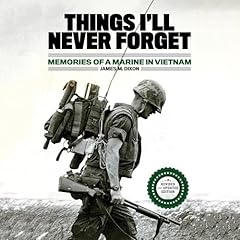
Blood and Soil
The Memoir of a Third Reich Brandenburger
No se pudo agregar al carrito
Add to Cart failed.
Error al Agregar a Lista de Deseos.
Error al eliminar de la lista de deseos.
Error al añadir a tu biblioteca
Error al seguir el podcast
Error al dejar de seguir el podcast
 Exclusivo para miembros Prime: ¿Nuevo en Audible? Obtén 2 audiolibros gratis con tu prueba.
Exclusivo para miembros Prime: ¿Nuevo en Audible? Obtén 2 audiolibros gratis con tu prueba.Compra ahora por $22.81
-
Narrado por:
-
P.J. Ochlan
The Brandenburgers were Hitler's Special Forces, a band of mainly foreign German nationals who used disguise and fluency in other languages to complete daring missions into enemy territory. Overshadowed by stories of their Allied equivalents, their history has largely been ignored.
First published in 1984, de Giampietro's highly-personal and eloquent memoir is a vivid account of his experiences. In astonishing detail, he delves into the reality of life in the unit from everyday concerns and politics to training and involvement in Brandenburg missions. He details the often foolhardy missions undertaken under the command of Theodor von Hippel, including the June 1941 seizure of the Duna bridges in Dunaburg and the attempted capture of the bridge at Bataisk where half of his unit were killed.
Translated into English for the first time, this is a unique insight into a fascinating slice of German wartime history, both as an account of the Brandenburgers and within the author's South Tyrolean origins.
Widely regarded as the predecessor of today's special forces units, this fascinating account brings to life the Brandenburger Division and its part in history in vivid and compelling detail.
©1984 Sepp de Giampietro; English translation copyright 2019 by Eva Burke (P)2021 TantorLos oyentes también disfrutaron:




















Las personas que vieron esto también vieron:











The ends justify the means?
Se ha producido un error. Vuelve a intentarlo dentro de unos minutos.
Beautifully written t
Se ha producido un error. Vuelve a intentarlo dentro de unos minutos.
loved the inclusion of the context of being from Süd Tirol
Was disappointed he dis not include more detail of his Italian experiences
however, altogether, a great listen
thank you for sharing Sep
a heck of a story
Se ha producido un error. Vuelve a intentarlo dentro de unos minutos.
Pretty amazing story
Se ha producido un error. Vuelve a intentarlo dentro de unos minutos.
Meh…
Se ha producido un error. Vuelve a intentarlo dentro de unos minutos.


